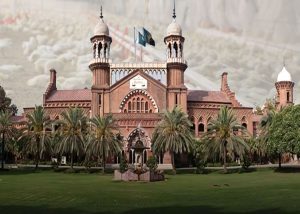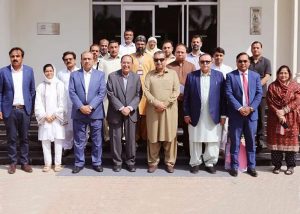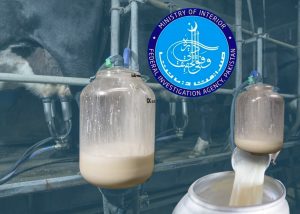
Karachi: Agricultural professionals have raised the alarm about a possible food crisis that could impact the entire country in the aftermath of recent flooding, stressing that more than 50% of the population lacks access to sufficient food.
Dr Fateh Marri, vice chancellor of SAU and FAO’s provincial director, Dr Rubina Wahaj, launched a food exhibition which had been planned by the Institute of Food Sciences and Technology for the ceremony.
Participants were addressed during a programme for World Food Day which was conducted on Monday at Sindh Agriculture University (SAU), Tandojam, in collaboration with the Food and Agriculture Organization (FAO).
The floods were brought on by weeks of intense monsoon rain after months following severe heat waves, and as they struck Pakistan struggled to deal with a serious financial crisis characterized by higher inflation and increasing food and fuel prices. Dr. Marri urged FAO to support Pakistan’s situation and made requests to the global community, sponsors, G20, and OIC. he further mentioned that Thar was witnessing a food shortage, he said, noting that the lack of nutrient-rich food was attributing to an escalation in the death rate for women and children, that was already high at over 50% of the community.
As stated by the Chancellor, Pakistan’s food security should be a concern for the G20 and OIC. The nation’s agricultural system needs to be improved and diversified. He observed that over the past 20 years, the country’s agricultural output could not have been expanded. He highlighted again that Pakistan’s agriculture industry focuses on a restricted number of commodities.
Dr Rubina Wahaj, the head of FAO’s Sindh division, stated that the risk to food security had risen as a result of adverse effects that climate change has had on the agriculture sector. She highlighted that 83 million people worldwide experienced food insecurity due to a lack of sufficient funds for food purchases. FAO is partnering with the SAU and other organizations in the nation on the worldwide food system, laying a stronger emphasis on promoting and training small farmers and attempting to create opportunities, including wholesome food for rural women and children.
The pro-VC of SAU’s Umerkot sub campus, Dr. Jan Muhammad Marri, indicated that although there were numerous issues with the health of women and children in Tharparkar owing to an inadequate supply of food, there were also a plethora of organic vegetables and fruits that could be grown in the vicinity. He stated that SAU has started work on Thar’s arid farming. He further added how the financiers should terminate Pakistan’s loans and developed countries should compensate Pakistan for losses brought on by climate change.
According to Dr Mohammad Ismail Kambhar, Pakistan is self-sufficient in a range of agricultural goods. It generates more than the rest of other nations in the world, but the current floods have made things more challenging. Children’s health and growth are deteriorating as a result of lack of nutrition.








